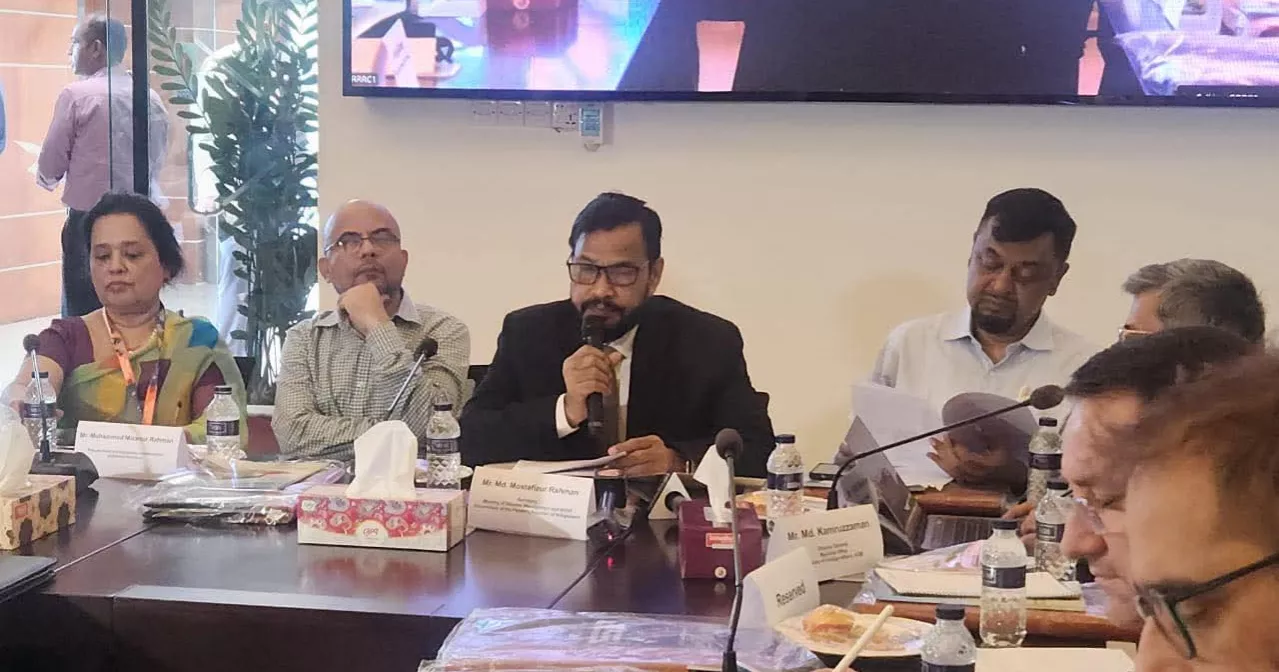With global funding for the Rohingya response shrinking at an alarming rate, the need for a sustainable solution to the crisis has become more urgent than ever, Disaster Management and Relief Secretary Md Mostafizur Rahman said on Sunday.
He made the remarks while addressing the inaugural session of the day-long conference titled “Rohingya Emergent Futures: Collective Foresight and Adaptive Action” held at the Refugee Relief and Repatriation Commissioner (RRRC) auditorium in Cox’s Bazar.
The event was organised by the Commonwealth Journalists Association (CJA), Bangladesh, in partnership with BRAC and RRRC, bringing together government representatives, humanitarian workers, academics, politicians, donors, civil society organisations, policy experts and journalists to reflect on the last five years and chart out future pathways.
Mostafizur Rahman said the decline in international cooperation and financing has emerged as a major challenge for Bangladesh, which continues to shoulder one of the world’s largest refugee burdens.
Quoting the UN World Food Programme (WFP), he said humanitarian assistance funds have decreased by nearly 30 percent in 2025 compared to 2023, severely impacting food security and overall living conditions in the camps.
“Between April and July this year alone, around 150,000 Rohingyas have been newly displaced, some attempting to cross into Bangladesh. Bangladesh is monitoring the situation closely from a humanitarian perspective but has also taken measures to protect national security and border stability,” he added.
Former CJA Bangladesh president and former AP Bureau Chief in Dhaka Farid Hossain presented a keynote paper titled “Solution to Rohingya Crisis Lies with Myanmar”, read out by this year’s conference coordinator Julhas Alam, also current Bureau Chief of the Associated Press.
Farid Hossain said Bangladeshi officials are increasingly alarmed by issues inside the camps, including domestic violence, trafficking and the rise of extremist ideologies.
As conditions deteriorate, more refugees may spill outside the camps, he noted.
Speakers at the conference acknowledged that Bangladesh has set an “unprecedented humanitarian example” by sheltering more than a million Rohingyas since 2017 despite limited resources and high population density.
Currently, 33 camps in Cox’s Bazar and Bhasan Char host the refugee population, supported by the government, armed forces, police, local administration, 11 UN agencies and over 160 NGOs.
CJA Bangladesh President Parveen F Chowdhury delivered the welcome speech, while BRAC Associate Director Nafiul Hasan spoke at the opening. Director General of the Myanmar Wing at the Ministry of Foreign Affairs Md Kamruzzaman attended as special guest.
RRRC Commissioner Mizanur Rahman presided over the session, and CJA Secretary General (In-Charge) Osman Gani Mansur offered the vote of thanks.
More than 60 journalists including CJA members and others from Dhaka, Sylhet, Chattogram, Rangamati, Bandarban, Khagrachhari and Cox’s Bazar consist of the CJA delegation, which visited the Rohingya camps during the two-day conference.















-20260221022942.jpg)
-20260221022827.webp)
















